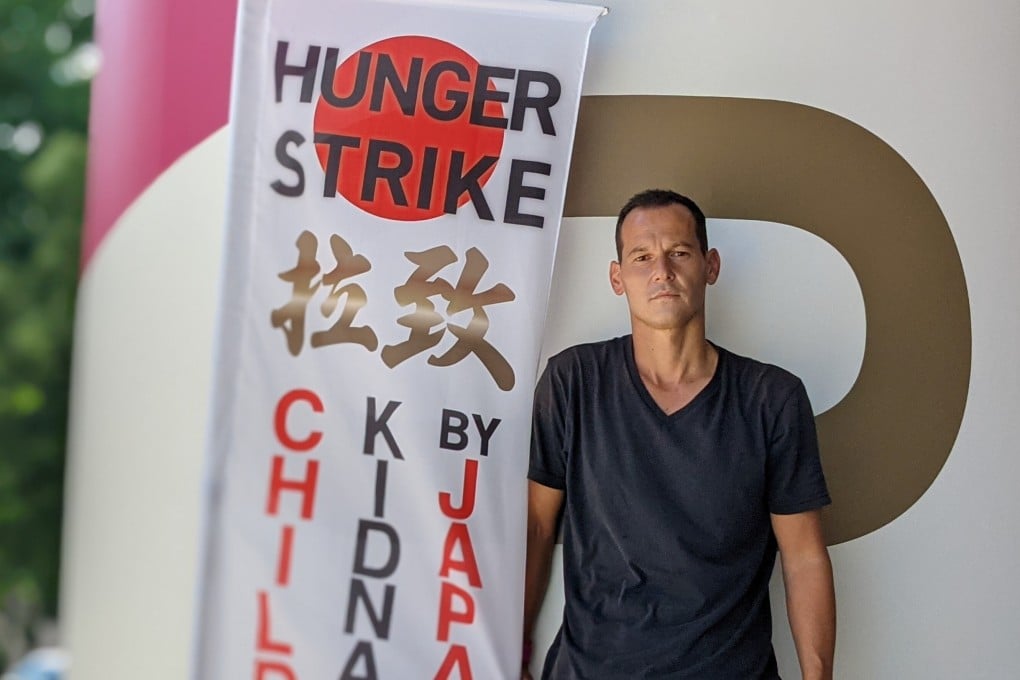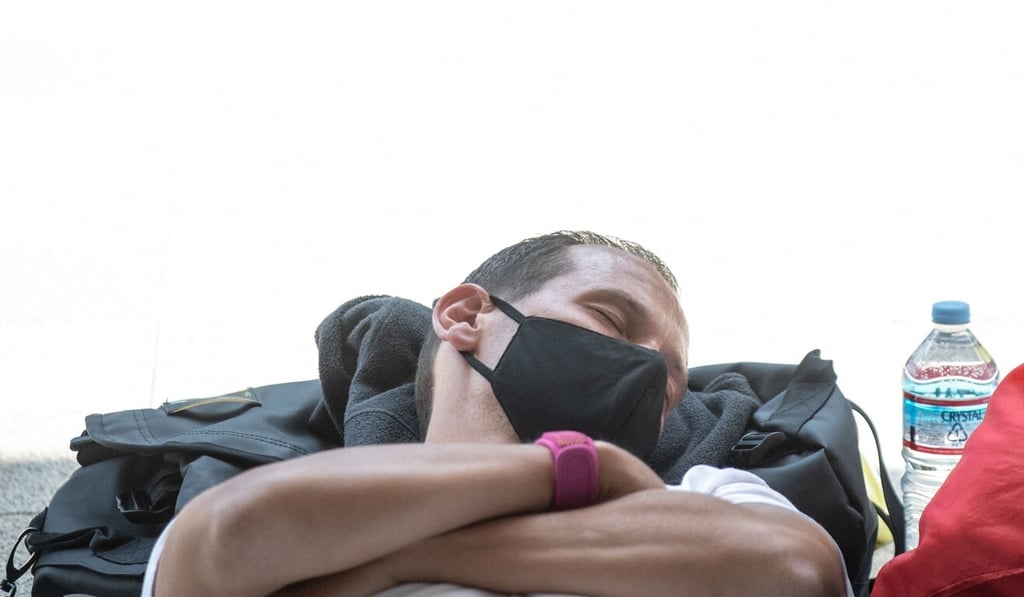French man faints on 20th day of hunger strike over children’s abduction by Japanese wife
- Vincent Fichot, 39, has been staging his one-man protest outside a train station in Tokyo, where temperatures have been above 30 degrees Celsius
- Yet he remains determined to be reunited with his children, whom he lost contact with three years ago after their mother disappeared

A Frenchman on the 20th day of a hunger strike in Tokyo to protest the abduction of his two children by his Japanese wife is being treated in hospital after passing out on Wednesday.
Vincent Fichot, 39, has been staging his one-man protest outside the train station closest to the National Stadium since July 10, but collapsed around 2pm on Wednesday.
The temperature in Tokyo was above 30 degrees Celsius at the time, but combined with the humidity, the “feels like” temperature was hovering around 36 degrees.
“I stood up from where I had been sitting and just fainted,” Fichot told This Week in Asia. “I think I blacked out for maybe five or six seconds, but when I came around, the little finger on my right hand was very badly bent.”

Two supporters took Fichot to a hospital, where X-rays confirmed a “complicated fracture” that might require surgery, he said.